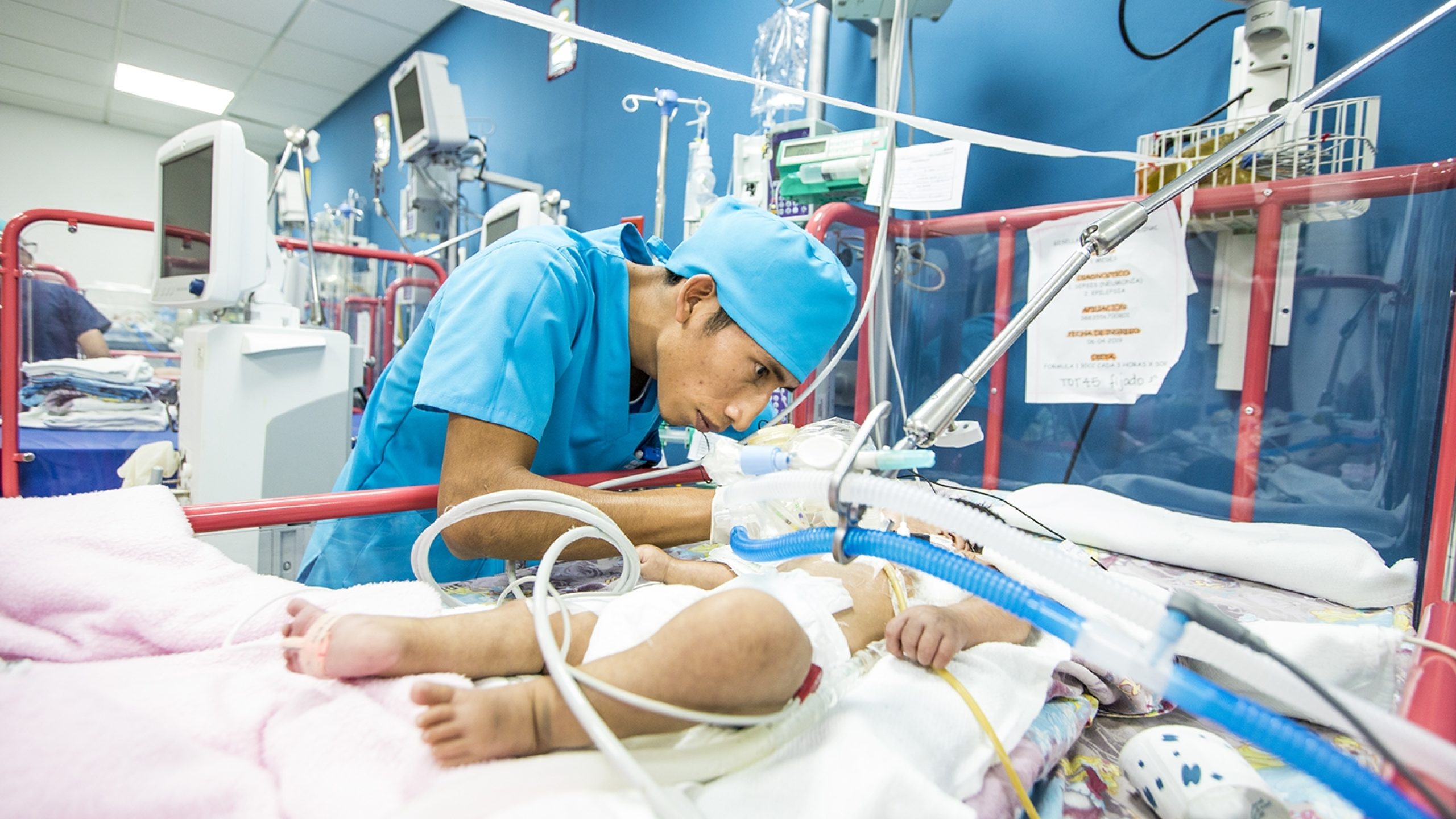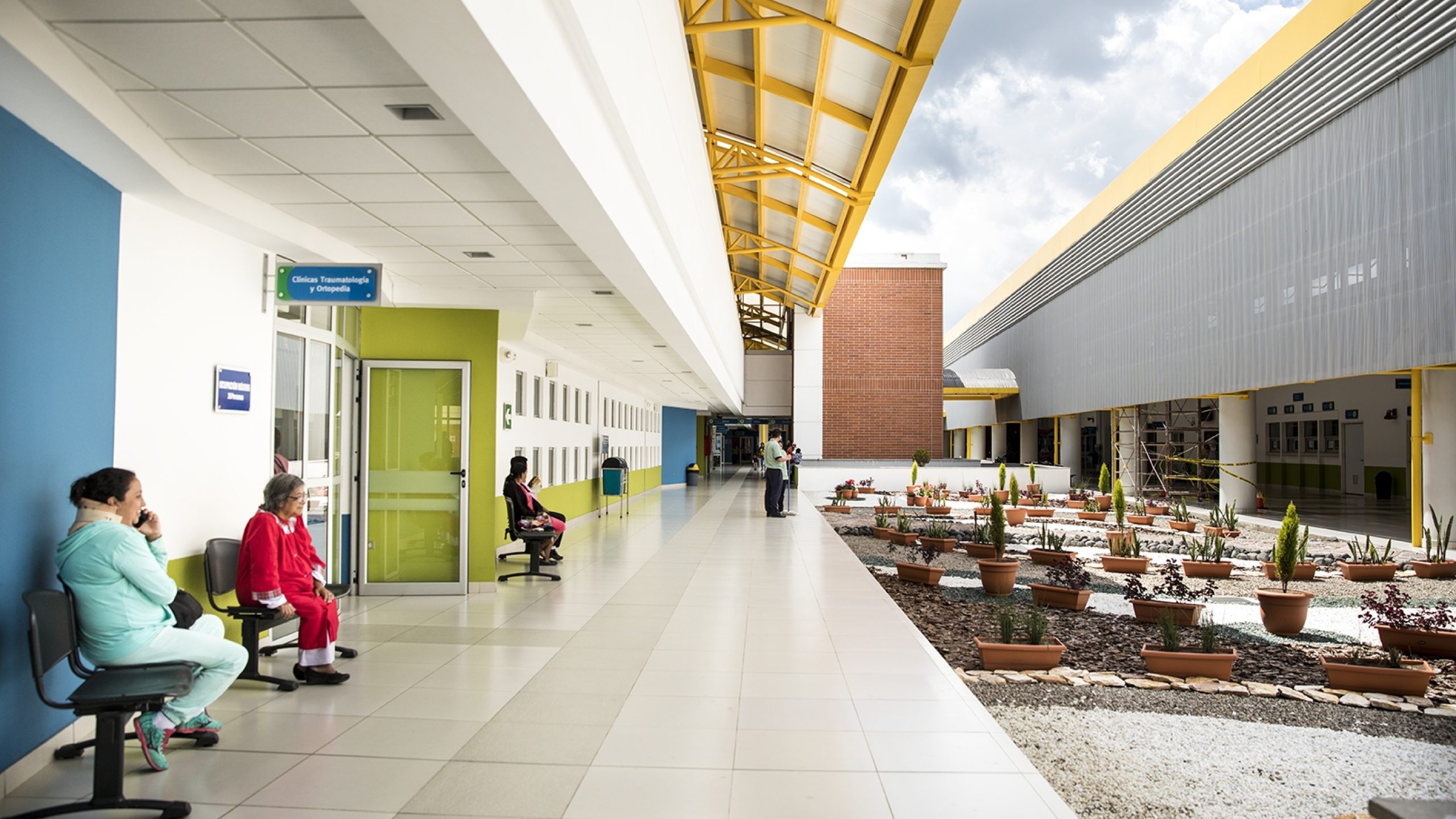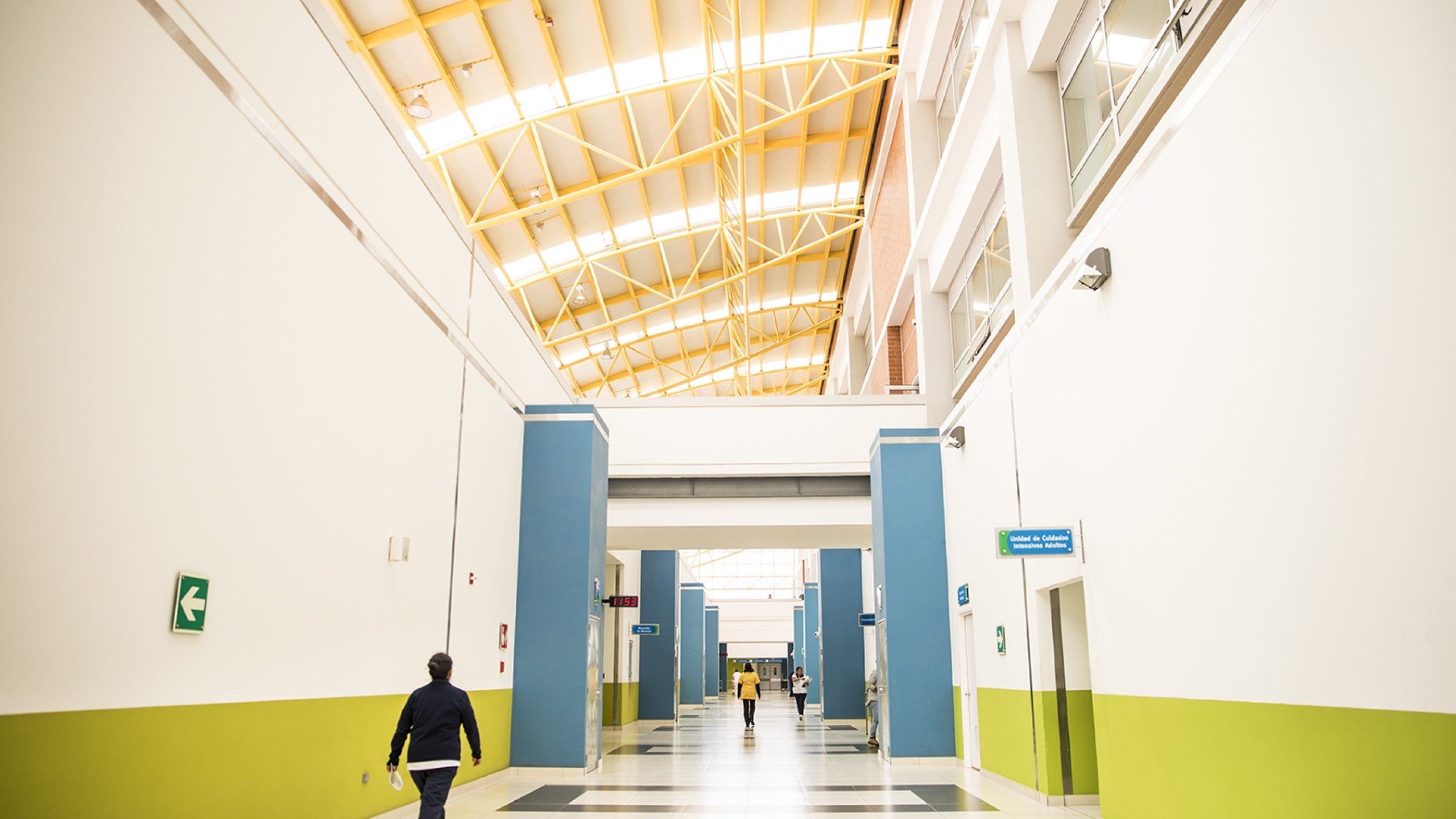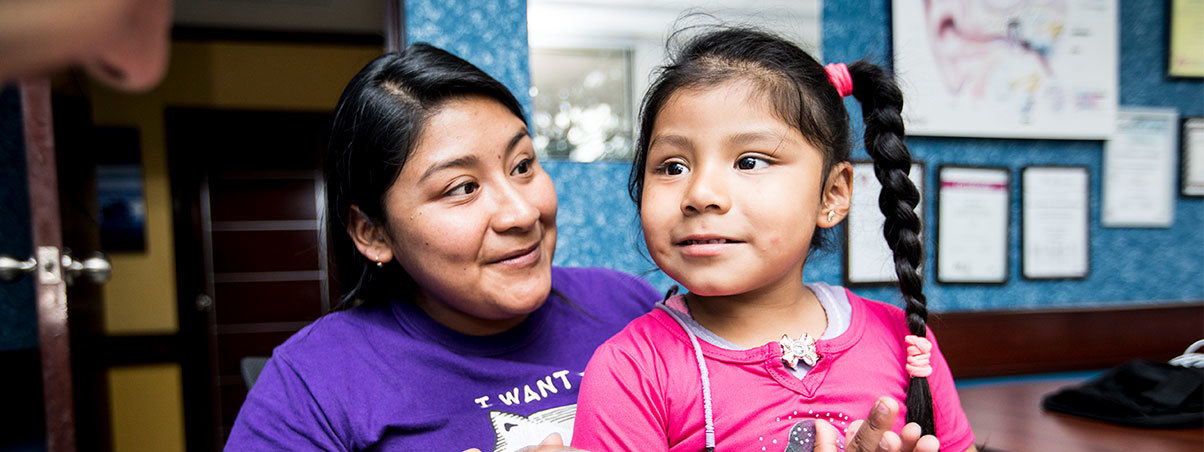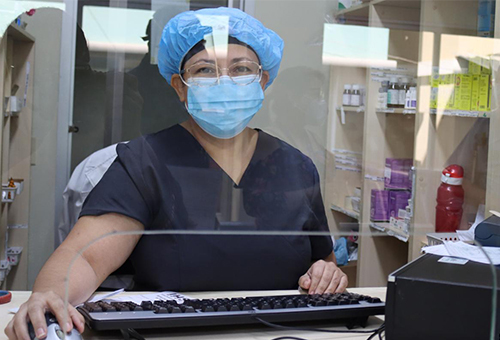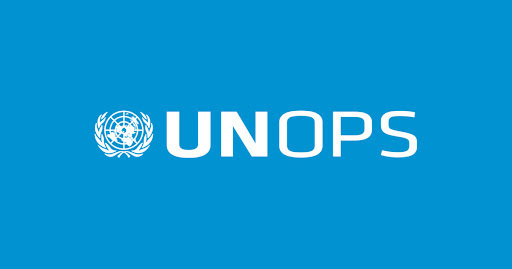The United Nations Office for Project Services (UNOPS)

Reliable healthcare in times of emergency
Four hours northwest of Guatemala City, amid the Western Highlands and at the foot of the Santa María volcano, lies the country’s second largest city Quetzaltenango – or as it is more commonly known, Xela, derived from its old Mayan name, Xelajú.
Quetzaltenango
Despite healthcare services being provided through the public sector, many Guatemalans who are indigenous or live in rural areas face a number of barriers to accessing quality healthcare. With the majority of Xela’s residents indigenous, many are considered vulnerable and underserved.
But thanks to a new hospital completed in 2017 and improved equipment, services and medicine availability, healthcare has been changing for the better throughout the region.
"The [old] hospital was small, with 41 beds, and an emergency area where all the patients were treated at the same time. We could be taking care of a child with diarrhoea, a woman in labour, a patient who crashed on a motorcycle and, at the same time, a grandmother who has high blood pressure," describes Dr. Fernando Marroquín Saavedra, Director of Quetzaltenango Hospital.
"Emergency care was given to the best extent possible [...] but when it was too much we had to send patients to other hospitals in the region or in the capital city,” he adds.
The new hospital has meant a transcendental improvement in patient care, not only for the municipality and the department, but also for the region. The hospital – one of the most modern facilities in Central America – now serves several departments throughout western Guatemala, including Huehuetenango, Quetzaltenango, Quiché, San Marcos, Sololá and Totonicapán.

On average, Quetzaltenango Hospital treats 4,300 patients per week in the outpatient clinic and treats 2,000 patients for emergencies
UNOPS is further working with Guatemala’s Social Security Institute (IGSS) to improve the acquisition of medicines and equipment, helping to ensure the medicines purchased – regardless of their trade name – are bought at a fair trade price and comply with international and national standards.
Dr. Saavedra says that the savings generated through IGSS’ collaboration with UNOPS will have a significant impact on the provision of healthcare services in the region. “The liquidity achieved through the savings will be directly spent on better material, medication and equipment for our members' care,” he says.
Another major improvement has been the hospital’s ability to take on more emergency cases, which was considered one of the main challenges that IGSS and the Quetzaltenango department faced. Once having to divert patients to other hospitals, Quetzaltenango Hospital now serves a significant number of the country’s emergency cases.
“We serve almost 40 per cent of the critical care situations in the country. People from all departments come to us, from Sololá to the Mexican border,” says Dr. Saavedra. “If there is a need for critical care, patients are referred to this hospital.”
Luisa Esperanza Ordóñez Gómez is one of many patients whose life was saved thanks to improved emergency and healthcare services.
About the project
Since 2016 – in an effort to improve the public health system – UNOPS has been working together with IGSS to improve transparency in public procurement, beginning with the acquisition of medicines and medical supplies, and later supporting wide-range institutional reform for IGSS.
Through this, UNOPS designed policies on sustainable procurement, infrastructure and project management, and trained 600 staff in public procurement and supply chain management.
The project further delivered significant savings for the government of Guatemala. Through 13 public tenders, UNOPS helped stock 114 hospitals and health centres across the country with 568 types of medicines, equaling around 450 million doses of medicine. Through the use of transparent and efficient procurement processes, the government estimated savings of around $270 million, reporting around 57 per cent savings on the purchase of medicines and 34 per cent savings on surgical medical supplies since they began working with UNOPS.
An estimated 3.2 million Guatemalans are benefiting from improved healthcare as a result. Importantly, the project has also left a legacy of transparency in a country with a high risk of corruption in public procurement and has helped lay the foundation for a more efficient and transparent future for procurement by IGSS.
With funding from IGSS, UNOPS collaborated with the UN Development Programme to help build the new hospital in Quetzaltenango.










